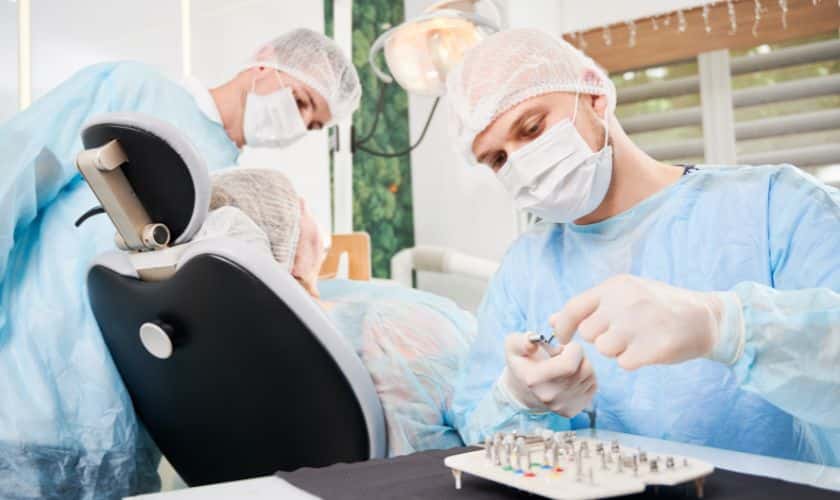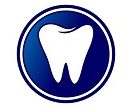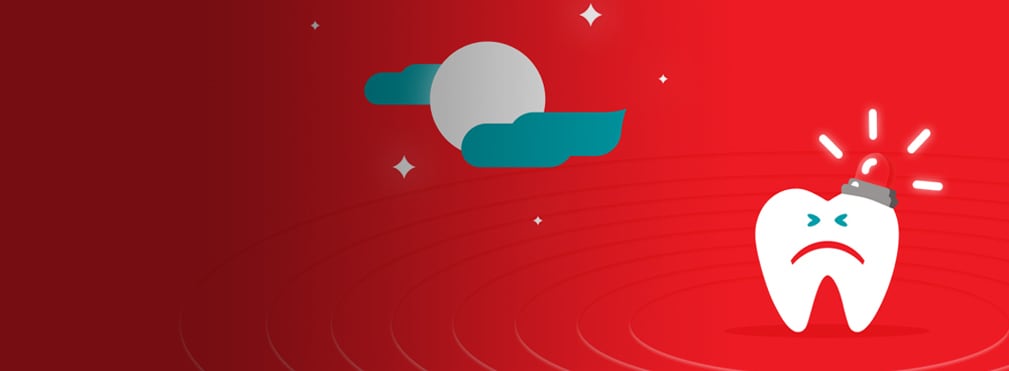Dealing With Dental Emergencies in Sports
When it comes to sports, injuries can happen in the blink of an eye. From broken bones to sprained muscles, you know how important it is to be prepared for anything that comes your way.
But have you ever considered what you would do if you experienced a dental emergency while playing your favorite game? Dental emergencies in sports can be painful and unexpected, but with the right knowledge and quick action, you can minimize the damage and get back in the game.
In this guide, we will explore the immediate actions you should take when faced with a dental emergency, how to handle broken and knocked-out teeth, and when it’s time to seek professional dental care.
So, lace up your shoes and let’s dive into dealing with dental emergencies in sports!
Key Takeaways
– Always wear a custom-fitted mouthguard during sports activities to provide maximum protection and comfort.
– Take immediate actions in a dental emergency, such as stopping the activity, locating a knocked-out tooth, and seeking dental care within 30 minutes.
– Handle broken teeth by rinsing the mouth, applying a cold compress, saving broken pieces, and seeking professional dental care.
– When dealing with knocked-out teeth, handle them carefully, try to reinsert if possible, store in milk or saline solution, and seek immediate dental care.
Prevention Is the Key
To prevent dental emergencies in sports, you should always wear a custom-fitted mouthguard. It’s a simple yet effective step that can save you from painful injuries and costly dental treatments. Unlike generic mouthguards, custom-fitted ones are specifically designed to fit your mouth, providing maximum protection and comfort.
When it comes to sports, accidents can happen in an instant. A stray ball, an unexpected collision, or a hard fall can all result in serious dental injuries. Without proper protection, you risk chipping, cracking, or even losing your teeth. However, by wearing a custom-fitted mouthguard, you create a barrier between your teeth and potential harm. It absorbs the impact, dispersing the force and reducing the risk of dental trauma.
Not only does a custom-fitted mouthguard offer superior protection, but it also ensures a comfortable fit. Unlike boil-and-bite or stock mouthguards, which can feel bulky and impede breathing, a custom-fitted one is molded specifically to your teeth and gums. This means you can speak clearly, breathe freely, and focus on your game without any distractions.
Immediate Actions to Take
Take immediate action if you experience a dental emergency while playing sports. Acting promptly can make a significant difference in preventing further damage and reducing the risk of long-term complications.
The first step is to stop the activity immediately and assess the situation. If a tooth is knocked out, try to locate it and handle it carefully by the crown, avoiding touching the root. Rinse the tooth gently with water, and if possible, try to reinsert it into the socket. If reinsertion isn’t possible, place the tooth in a container with milk or a tooth preservation solution.
It’s crucial to seek dental care as soon as possible, ideally within 30 minutes. If a tooth is partially dislodged, try to stabilize it by gently pushing it back into its original position. Apply a cold compress to reduce swelling and take over-the-counter pain relievers if needed.

Remember to contact your dentist for further guidance and to schedule an emergency appointment. Taking immediate action can help preserve your dental health and prevent further complications.
Handling Broken Teeth
When dealing with dental emergencies in sports, it’s important to know how to handle broken teeth.
A broken tooth can be a painful and alarming experience, but with the right knowledge, you can take immediate actions to minimize the damage and prevent further complications.
Firstly, you should rinse your mouth with warm water to clean the area around the broken tooth.
Next, apply a cold compress or ice pack on your cheek or lips to reduce swelling and alleviate any pain or discomfort.
It’s crucial to save any broken pieces of the tooth, as your dentist may be able to reattach them. Place the broken fragments in a container with milk or saliva to keep them moist. Avoid touching the tooth root to prevent further damage.
Finally, seek professional dental care immediately. Your dentist will assess the extent of the injury and determine the best course of treatment, which may include bonding, veneers, or a dental crown.
Dealing With Knocked-Out Teeth
If a tooth has been knocked out during a sports-related incident, immediate action is crucial to increase the chances of successful reattachment. Time is of the essence, so act quickly and follow these steps to deal with a knocked-out tooth.
First, locate the tooth and handle it carefully, avoiding touching the root. Rinse it gently with saliva or milk to remove any dirt or debris. Don’t scrub or clean it with water or any cleaning agents. Keeping the tooth moist is vital for successful reattachment, so try to place it back into its socket if possible. If reinsertion isn’t feasible, store the tooth in a container with milk, saline solution, or the person’s saliva. Avoid storing it in water, as this can damage the tooth.
Next, seek immediate dental care. Contact a dentist or emergency dental clinic to schedule an appointment as soon as possible. Time is critical, as the chances of successful reattachment decrease significantly after 30 minutes. Inform the dental professional about the incident and follow their instructions.
Remember, prevention is always better than cure. Encourage athletes to wear mouthguards during sports activities to minimize the risk of dental emergencies. Properly fitted mouthguards can absorb the impact of a blow, reducing the chances of tooth dislodgement.
Seeking Professional Dental Care
To ensure the best outcome for a knocked-out tooth, it’s imperative that you seek immediate professional dental care. When a tooth is knocked out, time is of the essence. The sooner you can get to a dentist, the better the chances of saving your tooth. Professional dental care is crucial because dentists have the expertise and equipment needed to handle dental emergencies effectively.
A knocked-out tooth requires prompt attention to increase the likelihood of successful re-implantation. Dentists have the knowledge and skills to assess the injury, clean the tooth properly, and determine the best course of action. They can also address any accompanying injuries to the mouth or surrounding tissues.
Seeking professional dental care also ensures that you receive appropriate pain management and medication, if necessary. Dentists can provide the right guidance on pain relief and prescribe antibiotics to prevent infection.
Furthermore, dental professionals can provide long-term care and follow-up treatment to ensure the tooth’s successful reintegration into the mouth. They can monitor the healing process and make any necessary adjustments or interventions if complications arise.
Frequently Asked Questions
How Long Will It Take for a Knocked-Out Tooth to Reattach?
It depends on several factors, such as how quickly you receive dental care. Generally, if a knocked-out tooth is properly preserved and reinserted within 30 minutes, there’s a higher chance of successful reattachment. However, even if it takes longer, it’s still possible for the tooth to reattach.
The dentist will evaluate the condition of the tooth and surrounding tissues to determine the best course of action. Remember, seeking immediate dental care is crucial in increasing the chances of a successful reattachment.
Can a Broken Tooth Be Fixed Without Going to the Dentist?
Yes, a broken tooth can be fixed without going to the dentist, but it isn’t recommended.
There are temporary dental filling kits available at pharmacies that you can use to fill the broken tooth yourself.
However, these kits are just temporary solutions and won’t provide a long-term fix.
It’s best to see a dentist as soon as possible to ensure that the broken tooth is properly repaired and to prevent any further damage or infection.
Are Mouthguards Effective in Preventing Dental Emergencies?
Mouthguards are a great way to protect your teeth during sports. They can effectively prevent dental emergencies by cushioning your teeth against impacts. Mouthguards act as a barrier between your teeth and any potential blows or collisions, reducing the risk of broken or knocked-out teeth.
When properly fitted and worn, they provide a comfortable and secure fit. So, if you want to lower the chances of dental emergencies while playing sports, wearing a mouthguard is a smart choice.
Can an Injured Tooth Cause Damage to Other Teeth?
An injured tooth can definitely cause damage to other teeth. When a tooth is injured or broken, it can create sharp edges or fragments that may come into contact with neighboring teeth. This contact can lead to chips, fractures, or even dislodgement of adjacent teeth.
Additionally, if the injured tooth isn’t properly treated, it can become infected, which can spread to other teeth and the surrounding tissues. Therefore, it’s crucial to seek prompt dental care for an injured tooth to prevent further damage.
What Are the Potential Long-Term Consequences of Neglecting a Dental Emergency?
Neglecting a dental emergency can have serious long-term consequences. If you ignore the problem, it could lead to infection, tooth loss, and damage to surrounding teeth and gums.
Without proper treatment, the condition could worsen and require more extensive and costly procedures in the future.
It’s important to seek immediate dental care to prevent further complications and ensure the best possible outcome for your oral health.
Conclusion
In conclusion, being prepared and taking immediate action are crucial when dealing with dental emergencies in sports.
By following preventive measures and knowing how to handle broken or knocked-out teeth, you can minimize the risk of long-term damage and ensure prompt professional dental care.
Remember, quick response and seeking profess browse this site ional help are essential for a successful recovery and maintaining good oral health.
Stay safe and protect your smile on and off the field.

Welcome to my website! I’m Declan Gaffney, a dedicated and passionate Preventive Dentist with years of experience in promoting oral health and providing top-notch dental care. I am thrilled to share my knowledge and expertise with you through this platform.

